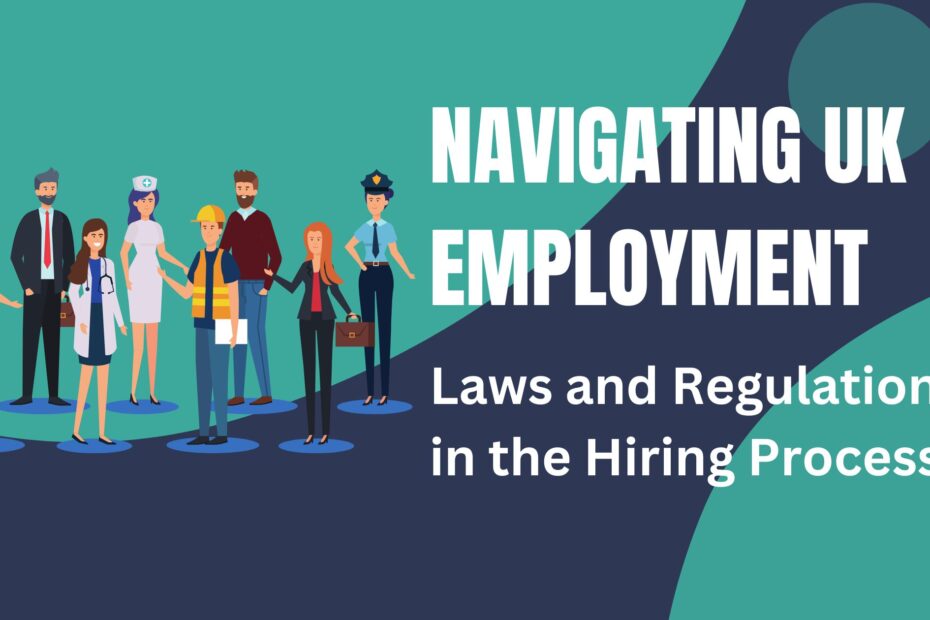Introduction
Hiring new employees is a critical process for any business, and navigating the complex landscape of UK employment laws and regulations is crucial for guaranteeing a fair, legal, and successful hiring process. Employers in the United Kingdom must adhere to various rules designed to protect employees and employers. This blog post will walk you through the steps necessary to navigate UK employment laws and regulations during the hiring process.
Equal Opportunity
Equal opportunity is a fundamental principle of UK employment law. It means employers cannot discriminate against candidates based on age, gender, race, religion, or disability. It is critical to ensure there’s no discrimination in job advertisements, interview questions, or selection processes.
Job Advertisements
When crafting job advertisements, employers must use inclusive language and avoid any language that might be construed as discriminatory. It’s also important to accurately describe the job and its requirements to ensure potential candidates clearly understand the role.
Interviewing Candidates
During the interview process, employers must ask questions that relate directly to the candidate’s ability to perform the job. Questions that probe into a candidate’s personal life, are generally considered inappropriate and may lead to legal complications.
Right-to-Work Checks
Before hiring a candidate, employers must conduct right-to-work checks to ensure the individual is legally allowed to work in the UK. It involves verifying the candidate’s identity and immigration status. Failing to carry out proper right-to-work checks can result in hefty fines for the employer
Data Protection and GDPR
Employers collect and store sensitive personal data about candidates during the hiring process. This information is subject to the General Data Protection Regulation (GDPR), which requires employers to handle information responsibly, securely, and with the candidate’s permission. For compliance purposes, a clear data protection policy must exist.
Contracts and Offer Letters
Employers must provide a written employment contract to a candidate once they have chosen them. This contract should outline the employment terms and conditions, such as salary, working hours, benefits, and notice periods. Offering a position to a candidate is an important step, and the offer letter should include the terms discussed during the interview process.
Minimum Wage and Working Hours
Employers must pay their employees at least the national minimum wage or the national living wage, depending on the employee’s age and status. Additionally, working hours must comply with the Working Time Regulations, which include maximum working hours, rest breaks, and annual leave entitlements.
Criminal Record Checks
Employers in some industries must conduct criminal record checks on potential employees to ensure that they are qualified for the position, particularly if it involves working with vulnerable individuals. However, it is critical to use this data responsibly and avoid making discriminatory decisions based on a candidate’s criminal history.
Whistleblowing and Protected Characteristics
Candidates’ rights to whistleblowing and protected characteristics should be made clear to them. It is critical to foster a culture in the workplace that encourages employees to report wrongdoing while also protecting them from retaliation.
Moreover, Navigating UK employment laws and regulations is critical for both employers and candidates during the hiring process. Employers can ensure a transparent and lawful hiring process by following equal opportunity principles, conducting fair interviews, conducting right-to-work checks, and complying with data protection regulations. Understanding and implementing these regulations not only reduces legal risks, but also contributes to the creation of a diverse, inclusive, and respectful workplace environment.
